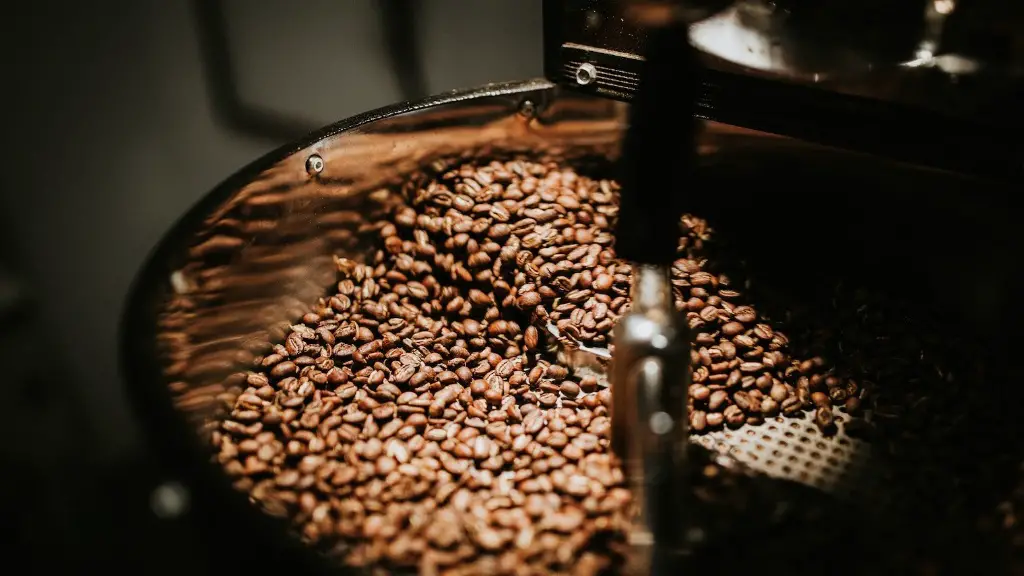The Benefits Of Coffee
Coffee is a beverage loved by millions of people all around the world, and for good reason – it is full of different compounds that can have potential benefits, including for your prostate health. In this article, we will take a look at the evidence for whether drinking coffee is good for your prostate.
Coffee and Heart Health
Coffee has been associated with improved cardiovascular health, although the exact mechanism of action isn’t known. The antioxidants present in coffee can protect the cells from metabolism-induced damage, and some research has suggested that the increased blood flow associated with drinking coffee may help protect against heart disease.
Coffee and Prostate Health
Studies have suggested that there is a link between drinking coffee and prostate health. One study found that men who drank four or more cups of coffee a day had a lower risk of prostate cancer compared to those who drank less than one cup a day. This may be because the antioxidants present in coffee can help protect against the damage caused by free radicals.
In addition, coffee may help reduce the risk of benign prostatic hyperplasia (BPH). BPH is a condition where the prostate enlarges, and can cause symptoms such as difficulty urinating. Animal studies suggest that the compounds in coffee can help reduce the size of the prostate and improve urinary flow.
The Role of Caffeine
Coffee contains caffeine, which is a stimulant that can have potential effects on the body. While it can have a positive effect on alertness and focus, too much caffeine can have negative consequences, so it is important to drink coffee in moderation.
There is some evidence to suggest that caffeine can help protect against prostate cancer, as it has been shown to slow growth of prostate tumors in animal studies. However, the exact mechanism of action is not known and more research is needed in this area.
Other Factors to Consider
When assessing the potential benefits of drinking coffee for prostate health, it is important to consider other factors. For example, how the coffee is prepared may influence the impact of the beverage on your health. Boiling or filtering the coffee can reduce the levels of some of the beneficial compounds found in coffee.
Coffee is also often consumed with sugar or cream, which may have an impact on your health. It is important to limit your intake of added sugar and cream and use healthier alternatives if possible.
It is also important to note that coffee may interact with some medications, so it is always best to speak to your doctor before adding coffee to your diet.
Conclusion
Overall, there is some evidence to suggest that coffee may be beneficial for your prostate health. While more research is needed in this area, it is important to note that coffee can also have other health benefits, such as improved cardiovascular health. As always, it is important to drink coffee in moderation and be aware of potential interactions with medications.
Coffee and Urinary Health
Studies have suggested that there is an association between drinking coffee and improved urinary health. One study found that drinking coffee was associated with a decreased risk of kidney stones, as it helps increase hydration and dilute the urine. Coffee may also help reduce the risk of urinary tract infections, as it helps flush the system and the antioxidants help protect against inflammation and infection.
The compounds in coffee can also help reduce the risk of other urinary disorders. One study found that drinking coffee was associated with a lower risk of overactive bladder syndrome.
Coffee can also help reduce the risk of urinary incontinence. One study found that drinking four or more cups of coffee a day was associated with a lower risk of incontinence in women. The antioxidants present in coffee may help reduce inflammation and improve bladder control.
Coffee and Male Reproductive Health
Coffee has been associated with improved male reproductive health. One study found that drinking coffee was associated with higher sperm counts and better-quality sperm. This may be because caffeine stimulates testosterone production and helps increase sperm motility.
In addition, coffee has been associated with a lower risk of erectile dysfunction. One study found that drinking three to four cups of coffee a day was associated with a lower risk of erectile dysfunction in men. Caffeine can help improve blood flow and reduce inflammation, which may help reduce the risk of erectile dysfunction.
The Impact of Decaffeinated Coffee
Decaffeinated coffee is a popular alternative to regular coffee, as it removes most of the caffeine content. However, some of the beneficial compounds present in regular coffee may still remain in decaffeinated coffee and could still provide health benefits.
Studies have suggested that decaffeinated coffee may still have a positive effect on prostate and urinary health. One study found that drinking decaffeinated coffee was associated with a lower risk of prostate cancer and improved urinary function in men.
Tips for Drinking Coffee
When it comes to drinking coffee, moderation is key. Too much caffeine can have negative consequences, so it is best to limit your intake to less than four cups a day. It is also important to limit your intake of added sugar and cream, as these can have a negative impact on your health.
When choosing what type of coffee to drink, it is important to consider the potential benefits of drinking regular coffee versus decaffeinated coffee. Regular coffee contains the beneficial compounds, but too much caffeine can have negative effects. Decaffeinated coffee still contains some of the beneficial compounds, but is lower in caffeine.
It is also important to consider other factors, such as how the coffee is prepared and if it is filtered or boiled. This can influence the amount of beneficial compounds present in the coffee, so it is worth considering this when choosing what type of coffee to drink.


